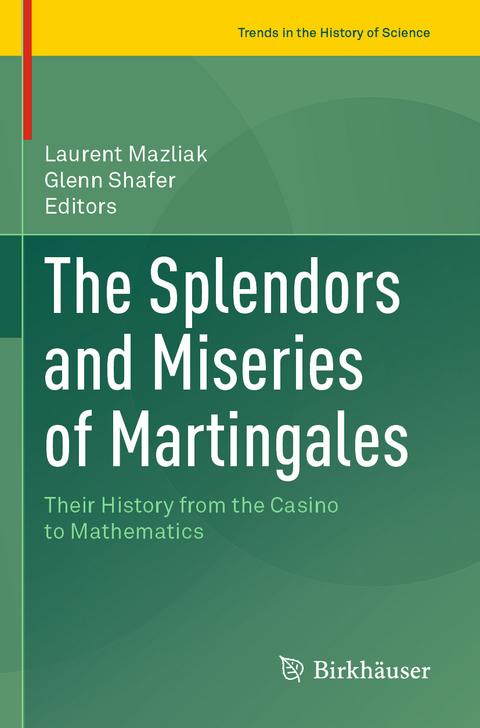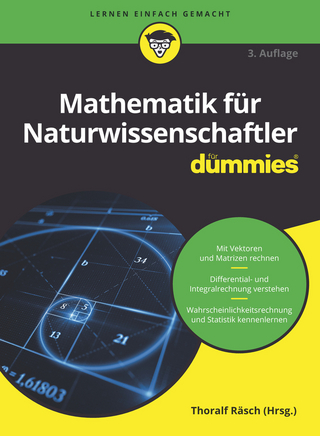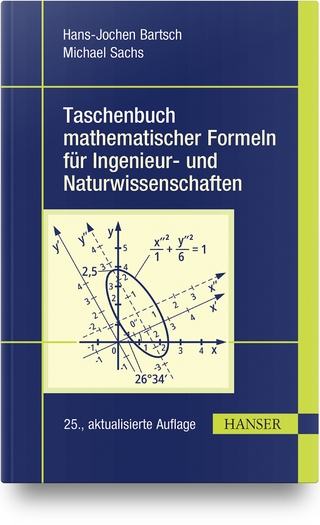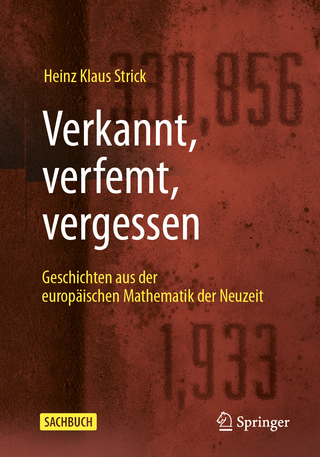
The Splendors and Miseries of Martingales
Springer International Publishing (Verlag)
978-3-031-05990-2 (ISBN)
Over the past eighty years, martingales have become central in the mathematics of randomness. They appear in the general theory of stochastic processes, in the algorithmic theory of randomness, and in some branches of mathematical statistics. Yet little has been written about the history of this evolution. This book explores some of the territory that the history of the concept of martingales has transformed.
The historian of martingales faces an immense task. We can find traces of martingale thinking at the very beginning of probability theory, because this theory was related to gambling, and the evolution of a gambler's holdings as a result of following a particular strategy can always be understood as a martingale. More recently, in the second half of the twentieth century, martingales became important in the theory of stochastic processes at the very same time that stochastic processes were becoming increasingly important in probability, statistics and more generally invarious applied situations.
Moreover, a history of martingales, like a history of any other branch of mathematics, must go far beyond an account of mathematical ideas and techniques. It must explore the context in which the evolution of ideas took place: the broader intellectual milieux of the actors, the networks that already existed or were created by the research, even the social and political conditions that favored or hampered the circulation and adoption of certain ideas.
This books presents a stroll through this history, in part a guided tour, in part a random walk. First, historical studies on the period from 1920 to 1950 are presented, when martingales emerged as a distinct mathematical concept. Then insights on the period from 1950 into the 1980s are offered, when the concept showed its value in stochastic processes, mathematical statistics, algorithmic randomness and various applications.lt;b> Laurent Mazliak is a historian, specialising in the history of mathematics, and a researcher at the Laboratoire de Probabilités, Statistique et Modélisation (LPSM) at Sorbonne University, France. He received his habilitation in 2000 and has devoted his work in history mainly to mathematics (especially probability) of the first half of 20th century. He defended a thesis in mathematics entitled "Partially observable control and point processes: theory and applications," under the direction of Jacques Neveu, at the Université Pierre-et-Marie-Curie, in 1990 and became a specialist in stochastic control of jump processes.
Glenn Shafer is Dean and Professor at the Rutgers Business School, Rutgers University, USA. He received an A.B. in mathematics in 1968 and a Ph.D. in mathematical statistics in 1973 from Princeton University, USA. He is best known for his work in the 1970s and 1980s on the Dempster-Shafer theory. It is a general framework for reasoning with uncertainty, allowing one to combine evidence from different sources and arrive at a degree of belief (represented by a mathematical object called belief function) that takes into account all the available evidence. The theory and its extensions have been of particular interest to the artificial intelligence community. More recently he worked with Vladimir Vovk to develop a game-theoretic framework for probability leafding to Probability and Finance: It's Only a Game! Glenn Shafer is also deeply interested in the history of mathematics (especially probability) and has authored several papers on the topic, such as a profound study of the origin of Kolmogorov's work on the foundation of probability with Vladimir Vovk, and a study about the arrest of Emile Borel during the German occupation of France with Laurent Mazliak.
IN THE BEGINNING: 1. Roger Mansuy: The Origins and Multiple Meanings of Martingale.- 2. Glenn Shafer: Martingales at the Casino.- 3. Bernard Bru and Marie-France Bru: Emile Borel's Denumerable Martingales, 1909-1949.- 4. Salah Eid: The Dawn of Martingale Convergence: Jessen's Theorem and Lévy's Lemma.- VILLE, LEVY and DOOB: 5. Glenn Shafer: Did Jean Ville Invent Martingales?.- 6. Laurent Mazliak: Paul Lévy's Perspective on Martingales and on Jean Ville.- 7. Bernard Locker and Laurent Mazliak: Doob at Lyon: Bringing Martingales Back to France.- MODERN PROBABILITY: 8. Paul-André Meyer and Glenn Shafer: Stochastic Processes in the Decades after 1950.- 9. Shinzo Watanabe: Martingales in Japan.- 10. Klaus Krickeberg: My Encounters with Martingales.- MODERN APPLICATIONS: 11. Laurent Bienvenu, Glenn Shafer and Alexander Shen: Martingales in the Study of Randomness.- 12. Tze Leung Lai: Encounters with Martingales in Statistics and Stochastic Optimization.- 13. Odd O. Aalen, Per K. Andersen, Ørnulf Borgan, Richard D. Gill and Nils Keiding: Martingales in Survival Analysis.- 14. Tyron Duncan: Encounters with Martingales in Stochastic Control. Appendix by Laurent Mazliak.- DOCUMENTS: 15. Bernard Bru and Salah Eid: Analysis or Probability? Eight Letters between Børge Jessen and Paul Lévy.- 16. Bernard Bru and Salah Eid: Counterexamples to Abstract Probability. Ten Letters by Jessen, Doob, and Dieudonné.- 17. Pierre Crepel: Jean Ville Remembers Martingales.- 18. Laurent Mazliak: Seven Letters from Paul Lévy to Maurice Fréchet.- 19. Laurent Bienvenu, Glenn Shafer and Alexander Shen: Andrei Kolmogorov and Leonid Levin on Randomness.
| Erscheinungsdatum | 19.10.2023 |
|---|---|
| Reihe/Serie | Trends in the History of Science |
| Zusatzinfo | XIV, 418 p. 17 illus., 8 illus. in color. |
| Verlagsort | Cham |
| Sprache | englisch |
| Maße | 155 x 235 mm |
| Gewicht | 658 g |
| Themenwelt | Mathematik / Informatik ► Mathematik ► Allgemeines / Lexika |
| Mathematik / Informatik ► Mathematik ► Geschichte der Mathematik | |
| Schlagworte | Brownian motion • Doob • Markov Processes • Martingales • Paul Lévy • Probability Theory • stochastic integral • Stochastic Processes |
| ISBN-10 | 3-031-05990-5 / 3031059905 |
| ISBN-13 | 978-3-031-05990-2 / 9783031059902 |
| Zustand | Neuware |
| Informationen gemäß Produktsicherheitsverordnung (GPSR) | |
| Haben Sie eine Frage zum Produkt? |
aus dem Bereich


